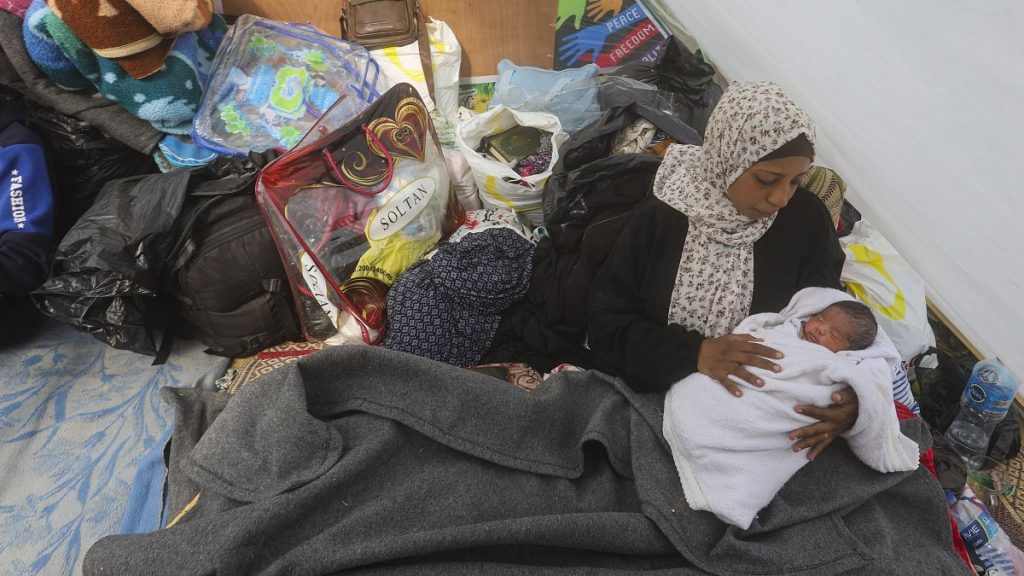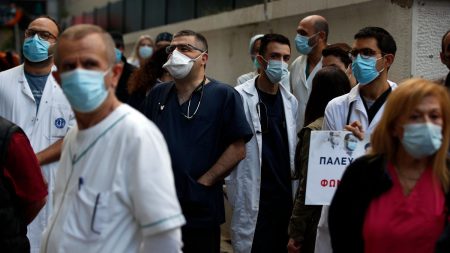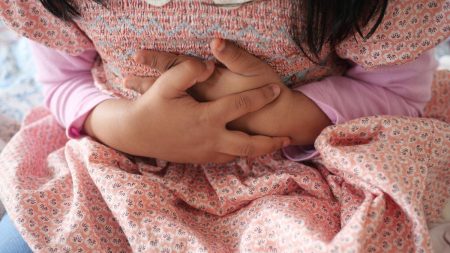The ongoing conflict in Gaza has created a humanitarian crisis that disproportionately affects women and girls, particularly those who are pregnant. Current estimates suggest that approximately 50,000 women in Gaza are expecting, with around 130 deliveries occurring daily. As Israel’s military operations intensify, health services in the region continue to deteriorate, leading to significant risks of pregnancy complications and violence against this vulnerable population. The United Nations Population Fund (UNFPA) has indicated that the situation is critical, with an overwhelming burden placed on the remaining health facilities. Only a fraction of the remaining hospitals in Gaza are operational, revealing severe shortages of medical supplies and equipment. Experts warn that even the facilities deemed functional are struggling to provide adequate care, as they are ill-equipped to address the urgent needs of patients, especially pregnant women.
Since the escalation of the conflict in October 2023, many health facilities in Gaza have sustained extensive damage, limiting their ability to offer critical services. The World Health Organization (WHO) reported that 19 out of 36 hospitals have been rendered unusable, and despite some facilities operating partially, they are unable to meet the rising demand for medical assistance. The UNFPA’s representative in Gaza has described the overall conditions facing pregnant women in the region as “harrowing,” drawing from her extensive humanitarian experience in other crisis zones. The dire statistics of maternal and child health in Gaza further emphasize the urgency of assistance, as many women are now forced to navigate unreliable access to prenatal and postnatal care amid a collapsing health system.
In response to the crisis, UNFPA has deployed mobile maternity units across central Gaza, designed to provide essential medical services to pregnant women. These mobile clinics facilitate prenatal care, assist in delivering babies, and offer postnatal support, including treatment for infections and contraception. However, the number of patients they can assist is minimal, only reaching a small fraction of the anticipated 130 births each day. The limitations of these services are compounded by the ongoing struggles to secure humanitarian aid, as supply routes into Gaza face significant interruptions. Kyoyagala noted that humanitarian missions have been heavily delayed or blocked altogether, further exacerbating an already difficult situation for expectant mothers and healthcare workers.
The humanitarian aid shortfall has resulted in alarming shortages of medical supplies, warm clothing, tents, fuel, and other essentials. As these vital resources dwindle, the capacity of organizations like UNFPA to offer support to victims of domestic violence and gender-based abuse becomes increasingly constrained. Reports of gender-based violence have surged in the wake of the conflict, underscoring the precarious situation for women and girls who face heightened risks in environments where gender inequalities are exacerbated by war. The historical pattern of armed conflict reveals that such turmoil typically exacerbates existing social issues, including violence against women, as conflict zones often compel women to navigate additional dangers while seeking basic survival necessities.
Despite international calls for improved humanitarian conditions, the response from key nations appears muted. The U.S. government, for instance, initially pressured Israel to enhance the humanitarian situation in Gaza within a specific timeframe but later asserted that Israel was not obstructing assistance, contradicting the assessments of various aid organizations. Many humanitarian groups have criticized this stance, claiming that the situation in Gaza is dire, with Palestinians facing imminent threats from disease, famine, and violence, particularly in northern regions experiencing renewed military focus. This disconnect between political statements and the grassroots humanitarian reality has raised concerns about the effectiveness of responses to the mounting crisis.
In summary, the plight of pregnant women in Gaza symbolizes the broader humanitarian emergency resulting from the ongoing conflict. With tens of thousands of women at risk, the challenges they face are compounded by the collapse of health services and the escalation of violence. The mobile maternity units deployed by UNFPA represent a crucial but limited effort to address the urgent needs of these women. The ongoing blockade and shortages of aid further complicate the already precarious situation, as reports of gender violence rise amid worsening living conditions. This dire state of affairs reflects a profound humanitarian concern, emphasizing the need for increased international attention and intervention to safeguard the health and rights of women in Gaza during this tumultuous time.














